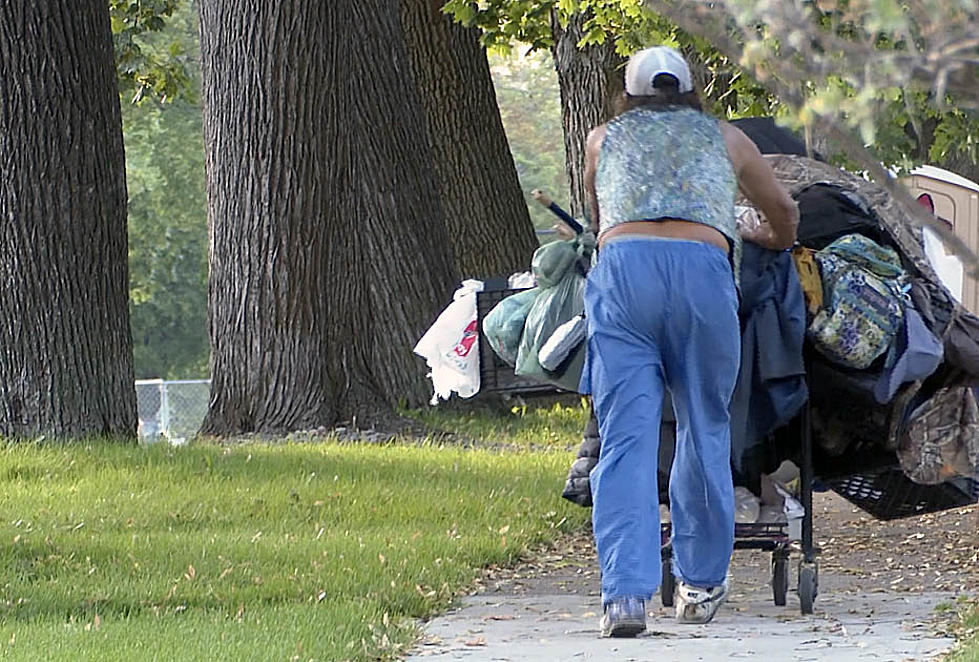
City of Missoula declares homeless ’emergency’ to levy extra mills for shelter
Martin Kidston
(Missoula Current) The City of Missoula on Friday declared an emergency surrounding homelessness and its lack of shelter space, enabling it to levy two emergency mills to help fund year-round shelter at the Johnson Street shelter.
Officials estimated the extra mills would generate around $500,000 and cost the average homeowner about $10 in all. But when coupled with the city's remaining ARPA funds, the county and local partners, it should be enough to operate the Johnson Street shelter for the remainder of the year.
The proposal still requires approval of the Missoula City Council.
“The Johnson Street shelter is really the only option open to us right now. It's available, it's been previously used for this purpose, and it can be transitioned with a relatively minor amount of effort,” said Missoula Mayor Jordan Hess. “There are improvements that are needed to that facility in order to meet health code, and we'll endeavor to make those improvements.”
The Johnson Street shelter sits on city land and has been used each of the past two winters for emergency shelter. But the shelter closed for the season in April and those who relied upon it each night have since turned to the city's streets and parks.
Such urban camps have prompted a large public outcry while creating issues around public health and safety.
“There's an increasing number of folks living without shelter, and that's increasing in our public spaces,” Hess said. “This is a statewide problem, it's a national problem, and it's a problem without an immediate and easy solution.”
While a number of factors have contributed to the sharp increase in Montana's homeless population and urban encampments, Hess attributed much of it to the cost of housing across the West. He also blamed the Legislature for cutting mental health case management in 2017, setting the stage for thousands of people to slip into homelessness.
The Johnson Street shelter will provide a temporary space for the homeless to go, but it won't solve the long-term problem, Hess added.
“We desperately need a national solution to this and a state solution to this,” he said. “Unless and until someone else steps up at another level of government, in my opinion, it's our moral obligation to do what we can locally.”
State absent from homeless help, leaving cities to seek solutions
Missoula had gotten by with its relatively new shelter at the Poverello Center, at least until the pandemic hit. The shelter was forced to cut its capacity, creating an emergency situation for the city's homeless residents, especially during the winter months.
During the pandemic, the federal government provided a variety of funding sources, enabling the city to prop up a number of new programs, including the mobile support team and the Emergency Winter shelter.
But now that funding has dried up and without help from the state, which was sitting on a $2 billion budget surplus heading into this year's legislative session, local taxpayers will be asked to foot the bill in search of solutions.
“Those programs have been highly successful and have had good outcomes but, unfortunately, that pandemic-related funding is drying up and we've been without a proper funding source to address this issue,” Hess said.
In declaring a homeless emergency, the city will levy two additional mills on local property owners to raise around $500,000. It will also apply its remaining ARPA funding to the effort while asking local nonprofits, churches and the county to pitch in.
The levy is one-time only and it doesn't solve the problem next spring, when today's issues around urban camping are likely repeat themselves. For now, Missoula County is on board to help solve the current emergency, at least this year.
“It will allow us to do enforcement, and it's better for the folks we're talking about than living outdoors,” said Commissioner Josh Slotnick. “We're going to cobble some finances together and the county will figure out ways to pay for this without taking money away that would have been spent in other areas.”
Other city officials praised the move on Friday afternoon including the Poverello Center and the Missoula Economic Partnership.
Grant Kier, CEO of MEP, said urban camping and the state of homelessness in Missoula has become an economic weight around the rest of the community.
“We've heard from many businesses over the last several weeks about the challenges they face as a result of this issue. We also know it impacts employees and their comfort and safety level when going to their jobs,” Kier said. “It's important we address this problem to support our businesses and our workers.”
To punctuate the lack of local resources, Hess compared the problem in Missoula to an effort underway in Los Angeles, where the city and the federal government have announced plans to reduce homelessness by 25%.
Los Angeles and the federal government have committed roughly $3 billion to do so. It's estimated that the city's homeless population sits at 70,000 people. In Missoula, the last point-in-time survey identified 644 homeless individuals.
“If you extrapolate out the per-individual cost in the city of Los Angeles to what a similar investment would look like in Missoula, we'd be looking at over $25 million to have the same level of investment,” Hess said. “It's nearly our complete general fund. We would almost need to double our General Fund tax revenue to address this in a way that LA is.”
